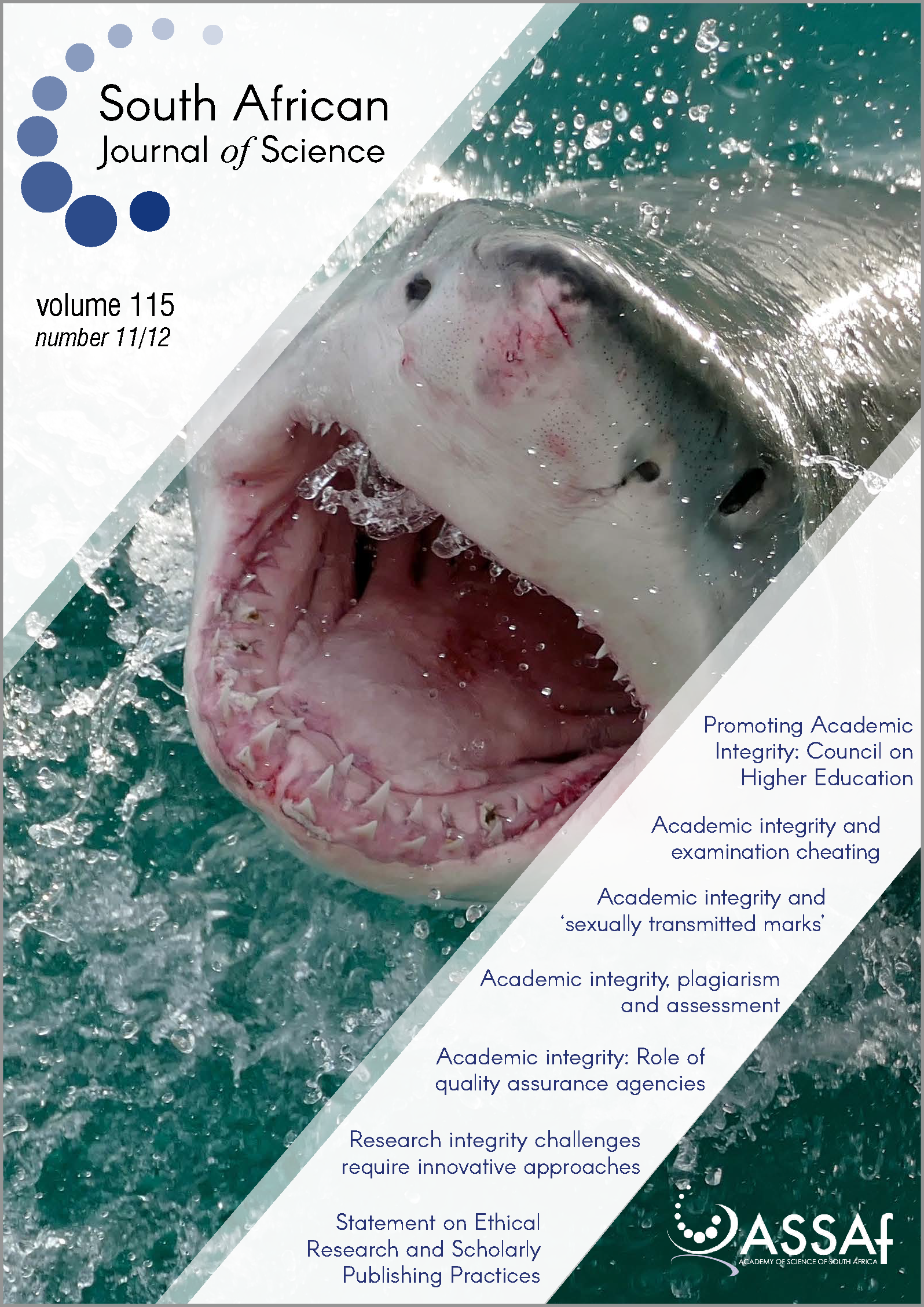Examination cheating: Risks to the quality and integrity of higher education
DOI:
https://doi.org/10.17159/sajs.2019/6281Keywords:
university, academic integrity, graduate values, purpose of higher education, graduate competenciesAbstract
We examine the exigencies and impact of examination cheating, focusing specifically on the prevalence and risk of cheating taking place in examination venues. We document the problem with global coverage and note the consistency of the scourge and highlight the different approaches of institutions to dealing with the risk. Stressing the prejudice arising from examination cheating to both universities specifically and society generally, one of the root causes of the risk, namely the moral compass and ethical norms of university students and the societies in which they function, is discussed. The innovation of students when working out cheating practices and the facilitating effects of technology are considered as a backdrop to exemplars of good practices that have been implemented to mitigate the reality and risk of examination fraud. Recognising examination cheating as a fraud on society and a critical risk to university reputation, we question whether university leadership recognises the risk and gives it adequate (and responsible) emphasis in strategic and operational organisational risk identification and management.
Significance:
- Cheating in examinations, and especially in the examination venue, is a global scourge. A comparison of global good practices is presented which provides a framework for institutional discussion to begin to address and transparently deal with the issues and impact of examination cheating.
- Acknowledging technology as one of the significant enablers of examination fraud and noting the constraints confronting universities, there is nevertheless a critical need for institutions to mitigate the risk. In not doing so, universities, which are fundamentally supported by the fiscus and public taxpayers, are committing a fraud on society.
- The attitude of some students and academic staff, as well as public perceptions to examination cheating raise the lid on a moral decay that is beginning to manifest in society globally.
- Universities are challenged to address the issue of examination cheating proactively, openly and honestly. The repercussions of failing to do so are highlighted and exemplars are provided of what can and has already been tried and tested to mitigate the risks.
Downloads
Published
Issue
Section
License

All articles are published under a Creative Commons Attribution 4.0 International Licence
Copyright is retained by the authors. Readers are welcome to reproduce, share and adapt the content without permission provided the source is attributed.
Disclaimer: The publisher and editors accept no responsibility for statements made by the authors
How to Cite
- Abstract 2499
- PDF 1823
- EPUB 244
- XML 435
- Supplementary Material 269












.png)